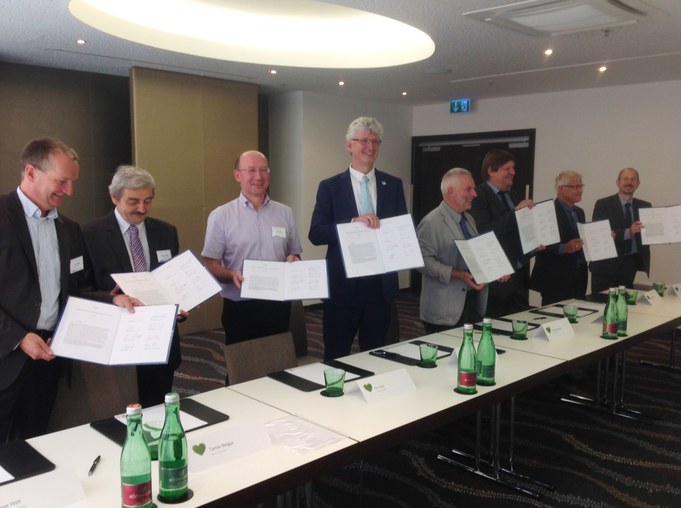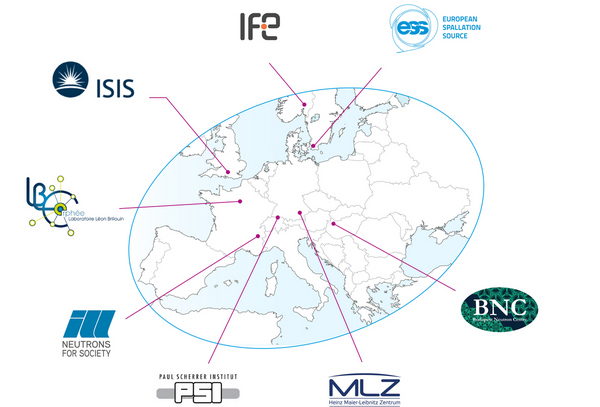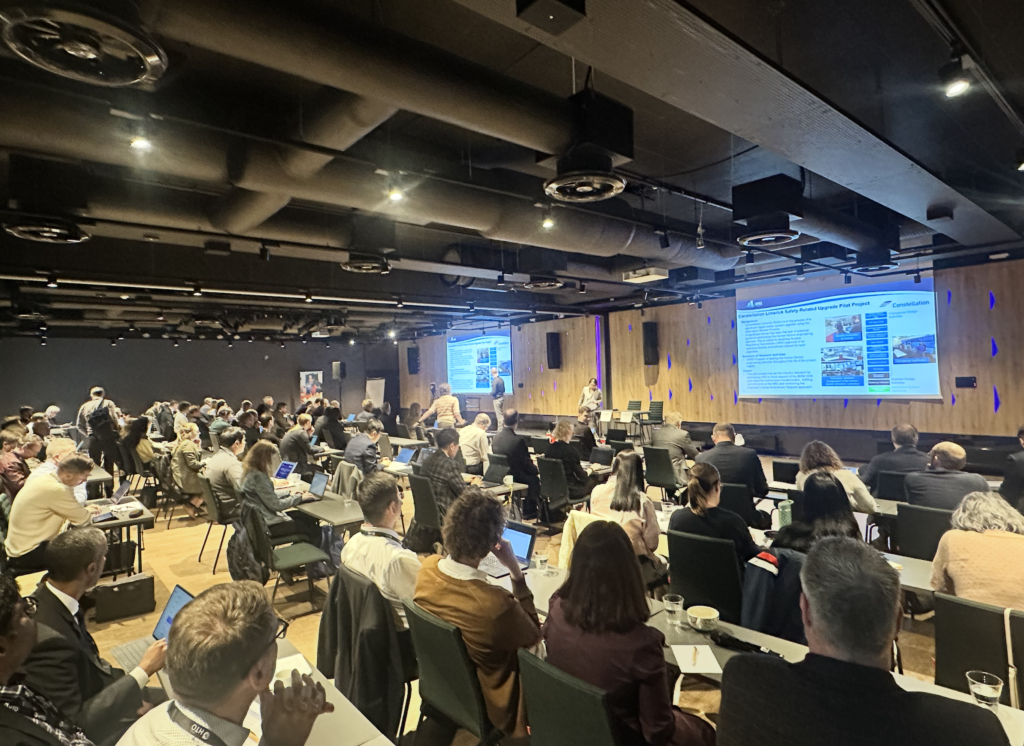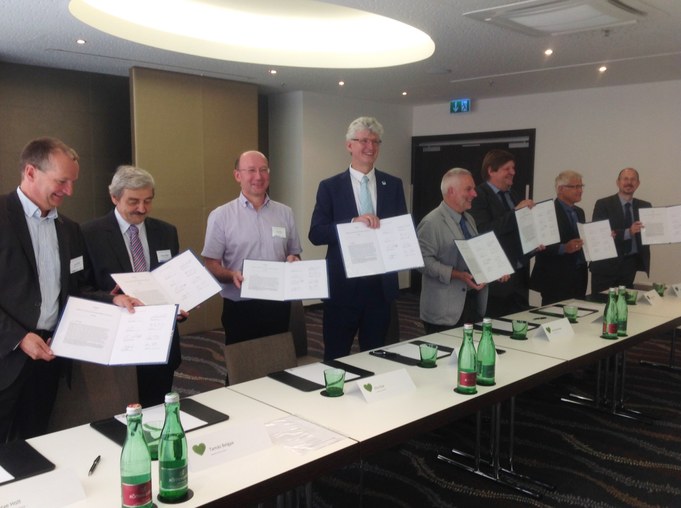
Jean-David Malo, European Commission, welcomed the creation of the LENS consortium for more impactful and open European neutron science: “The LENS consortium objectives are well aligned with the Long term sustainability plan for Research Infrastructures of the Commission”.
The founding partners in the consortium include both European and national facilities in France, Germany, Sweden, Hungary, the United Kingdom, Norway and Switzerland. Other qualifying facilities are invited to join at any time.
Helmut Schober, director of ILL, stated during the ceremony “Research on materials will provide the basis for the technologies of the future that are needed to achieve a sustainable high standard of living all over the globe. LENS will help developing these technologies by optimizing the use of resources for neutron investigations through strategic coordination among the neutron facilities.”
The establishment of LENS comes at a key moment of transition and optimism in European neutron science, and places particular emphasis on the interaction between the neutron science user communities and funding organizations. By optimising resources and closely aligning policies among partners, the LENS vision is one of continuous improvement and adaptation by neutron source facilities to the communities they serve.
Neutron-based analytical facilities, therefore, are used in numerous disciplines across the entire range of science and technology development, and generate a high socio-economic impact. Europe has achieved global leadership in this field, serving a very broad scientific community of more than 5,000 researchers by providing them with more than 32,000 instrument days at neutron scattering facilities.
LENS Founding Partners:
• Budapest Neutron Centre, Hungary
• European Spallation Source, Sweden
• Heinz Maier-Leibnitz Zentrum, Germany
• Institut Laue-Langevin, France
• Institute for Energy Technology, Norway
• ISIS Neutron & Muon Source, United Kingdom
• Laboratoire Léon Brillouin, France
• Paul Scherrer Institute, Switzerland

Related news
-

9. May 2025
Experts in Nuclear Safety Gathered in Norway
This week, the Institute for Energy Technology (IFE), on behalf of the OECD Nuclear Energy…
-

29. April 2025
Blykalla and IFE partner to advance key primary systems for scalable SMR deployment
Blykalla and the Institute for Energy Technology (IFE) have entered into a strategic…
